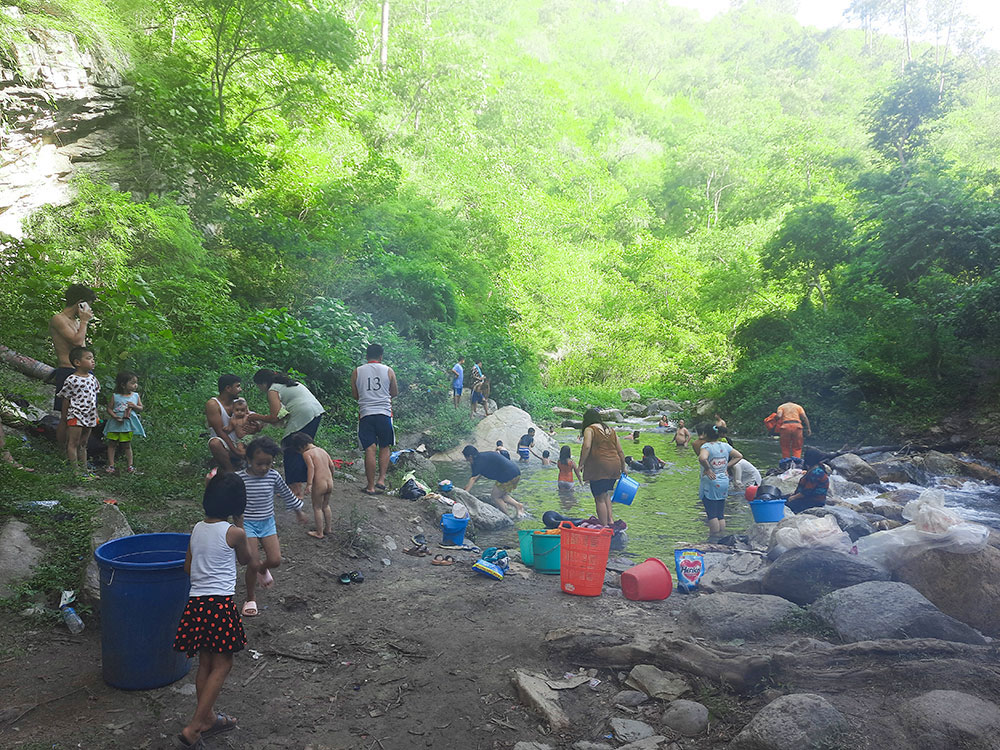Jigmi Wangdi
Bhutan launched a USD 8.9 million project to address the water shortages and declining water quality on September 3.
The project will restore and manage water catchments, introduce climate-resilient agricultural practices and livelihoods, and promote the resilience of climate-proof water and irrigation infrastructure.
With an additional USD 25 million in co-financing from the government, the five-year project, Advancing Climate-Resilience of the Water Sector in Bhutan (ACREWAS), will benefit more than 37,000 people of Gasa, Punakha, and Tsirang, some of the most climate-vulnerable regions of the country.
Infrastructure and Transport Minister Dorji Tshering, said climate change is predicted to cause a substantive decline in Bhutan’s agricultural production in the absence of adaptation measures.
“We welcome this important transformative project, to be led by the Ministry, which will promote nature-based solutions driven by communities, institutions, and the private sector,” Lyonpo said.
The project is supported by the Global Environment Facility’s Least Developed Countries Fund (GEF-LDCF) and UNDP to address water shortages and declining water quality in the country, both driven by the global climate crisis.
The project will look at increasing the coherence of national and local policies related to climate-resilient water resource management, also strengthening the capacity of government and community-based institutions to manage these resources in an efficient, innovative and sustainable way.
The financial mechanisms will be established to encourage public-private and entrepreneurial participation in water resource management including in operations and maintenance, according to a press release from the UNDP.
Innovative conservation financing solutions such as the Payment for Environment Services (PES) will be introduced, offering farmers incentives to sustainably manage their land.
UNDP Bhutan Resident Representative, Mohammad Younus, said, “The impact of climate change on water poses a significant threat to sustainable development in Bhutan.”
“Building on Bhutan’s strong commitment and leadership on sustainable development and environmental conservation, this project will help enhance the climate-resilience of the water sector, thus helping safeguard the nation’s economic development and social well-being, including people’s livelihoods, food security, and health,” he said.
Climate projections for Bhutan suggest an increase in temperatures likely to trigger heat waves and droughts and contribute to melting of glacial and snow. Rapid changes in average temperatures and rainfall patterns are the biggest threat to farmers, who depend on monsoon and rain-fed agriculture.
The country has witnessed an increase in the frequency and severity of droughts, floods, and landslides. These events are affecting the country’s economy and having significant consequences for rural and peri-urban communities dependent on agriculture for their livelihoods.
The ACREWAS project is aligned with the government’s development plans and priorities, National Adaptation Plan (expected to be launched this year), and Nationally Determined Contribution under the Paris Agreement.
A wide range of stakeholders will be engaged to inform and deliver the project, including communities, government institutions, civil society organizations, academia, entrepreneurs and private sector players involved in the operations and maintenance of water distribution.
Through the project, 19,391 people (almost half of them women) will have assured access to irrigation and domestic water through climate-proofing and enhancement of water infrastructure, 41,910 hectares of land will be restored or brought under climate-resilient management and 38,518 hectares of watersheds will be restored and protected.
Additionally, 3,392 hectares of agricultural land will be brought under climate-resilient practices including the adoption of climate-smart agricultural technologies and 74kms of water transmission and distribution lines will be “climate-proofed” and automated with the Internet of Things (IoT) and ICT-based technologies.
A key component of the project is also to share knowledge and raise awareness in relation to climate-resilient water resource management, according to the press release.


